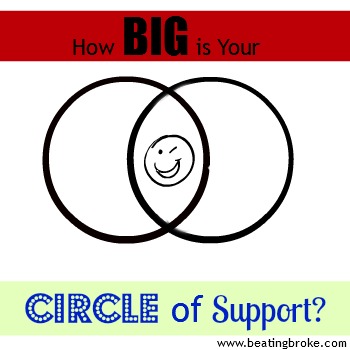Navigating social interactions can often feel like walking through a linguistic minefield, especially when it comes to giving compliments. What’s intended as a gesture of goodwill can sometimes backfire if the underlying message doesn’t match your intentions. This deeper dive into the world of seemingly benign sayings reveals why certain “compliments” can carry unintended negative connotations, urging a more thoughtful approach to how we express admiration and respect in our increasingly diverse and socially conscious society.
1. “You’re so articulate!”
On the surface, this seems like praise for someone’s eloquence or clarity in speaking. However, when you direct this comment towards individuals from particular racial or ethnic backgrounds, it carries an underlying implication of surprise that someone from their group can be well-spoken, perpetuating harmful stereotypes.
2. “You clean up well!”
This backhanded compliment is an attempt to express admiration for someone’s appearance at a particular event or gathering. However, it insinuates that the person’s usual state is less than presentable, inadvertently casting their everyday appearance in a negative light.
3. “You’re not like other girls/boys.”
Intended to set someone apart as special or unique, this phrase, unfortunately, demeans others. It suggests there’s something inherently negative about being ‘like the rest.’ As a result, it perpetuates stereotypes and creates unnecessary divisions.
4. “I wish I could be as relaxed about my appearance as you are.”
Though it might sound like praise for someone’s confidence or carefree attitude, this statement implies a lack of effort or concern about one’s appearance, subtly critiquing the person’s grooming or fashion choices.
5. “You’re pretty for [a specific attribute].”
This qualifier undermines the compliment by suggesting that people with a specific attribute (be it race, size, age, etc.) are usually not considered attractive. As a result, it makes the “praise” feel more like an exception to an unwritten rule rather than genuine admiration.
6. “You’re so brave for wearing that.”
What’s often intended as a celebration of someone’s fashion risk can instead imply that their outfit choice is somehow daring or unconventional in a negative sense. Essentially, it hints that it falls outside acceptable norms and requires courage to pull off.
7. “You’ve lost weight, you look great!”
Linking someone’s attractiveness to their weight loss not only suggests they were less attractive before but also perpetuates unhealthy body image standards. It’s a reminder that our society often equates thinness with beauty, overlooking the diverse range of healthy body types.
8. “You’re doing well for your age.”
While many use the phrase to applaud someone’s accomplishments or vitality, this backhanded compliment reduces their achievements to a mere function of their age. Essentially, it’s insinuating that their success is surprising or abnormal for someone of their years.
9. “It’s so easy for you; you’re naturally smart/talented.”
This statement, though seemingly laudatory, diminishes the hard work and dedication behind someone’s achievements. How? By attributing them solely to innate talent and overlooking the effort, practice, and perseverance that contribute to success.
10. “You must have your hands full with those kids.”
Often directed at parents in a tone of faux admiration, this remark suggests that their children are a handful or troublesome. It undermines the parent’s efforts and can come off as patronizing rather than complimentary.
11. “It’s great how you don’t care what people think about you.”
Most people say this phrase to praise someone’s independence or confidence. However, it implies that there’s something about them that should warrant concern or that their choices defy social norms in a way that’s not entirely positive.
12. “You’re so exotic-looking.”
Usually an attempt at appreciating someone’s good looks, this phrase exoticizes the individual, reducing their attractiveness to their perceived “foreignness” or novelty. It objectifies and others the person, creating a tie between appeal and how “different” they are from the norm.
Avoiding Compliments That Actually Aren’t
These examples highlight the nuanced nature of language and the importance of considering the implications of what we say, especially in compliments that may carry hidden biases or stereotypes. The evolution of societal norms and increasing awareness of diversity and inclusivity call for a more mindful approach to communication. By critically examining the words we use and their potential impact, we can foster more positive and genuinely uplifting interactions. This careful consideration ensures our compliments are well-received and contributes to a more respectful and empathetic social discourse.
Read More:
15 Phrases That Give Away a Man’s Insecurities
21 Terms That Subtly Promote Religious Exclusivity
Catherine is a tech-savvy writer who has focused on the personal finance space for more than eight years. She has a Bachelor’s in Information Technology and enjoys showcasing how tech can simplify everyday personal finance tasks like budgeting, spending tracking, and planning for the future. Additionally, she’s explored the ins and outs of the world of side hustles and loves to share what she’s learned along the way. When she’s not working, you can find her relaxing at home in the Pacific Northwest with her two cats or enjoying a cup of coffee at her neighborhood cafe.






![You're pretty for [a specific attribute]](https://www.beatingbroke.com/wp-content/uploads/2024/04/Youre-pretty-for-a-specific-attribute-300x200.jpg)










